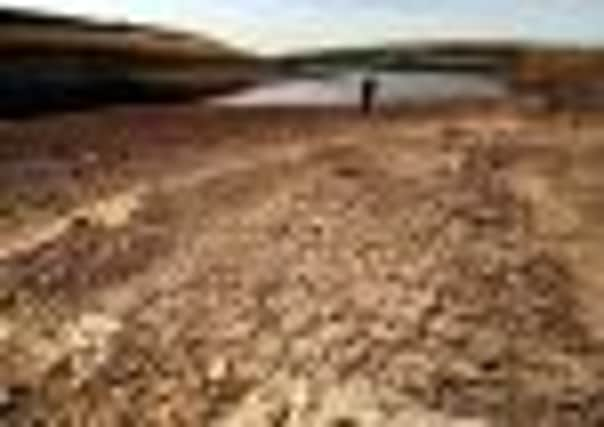Gary Haq: We must get real and start treating water like a precious commodity


How many of us are guilty of leaving the tap on while brushing our teeth, over filling the kettle or spending too much time in the shower?
Each person in the UK uses an estimated 150 litres of water a day which is equivalent to 264 pints of milk.
Advertisement
Hide AdAdvertisement
Hide AdBy the time water reaches our tap it has already been cleaned, treated and pumped from reservoirs, rivers and aquifers with much of it being leaked from pipes.


It is only in times of drought such as that experienced in parts of the UK are we forced to rethink how we value and use water.
Water is a crucial element for human existence as clearly demonstrated by the devastating effects of the severe drought in East Africa.
Safe water is necessary to avoid death from dehydration, reduce the risk of water-related disease and provide for domestic use.
Advertisement
Hide AdAdvertisement
Hide AdIt is estimated that each person needs about 20 litres of water each day to drink, cook and wash.
Everyone has a right to sufficient, safe, acceptable and affordable water. Unfortunately, these days fresh clean water is becoming a precious commodity.
A European Environment Agency report on water resources across Europe shows that southern Europe continues to experience the greatest water scarcity problems. However, water stress is growing in parts of northern Europe.
Drought is a feature of the UK’s variable climate, with dry spells possible at any time of the year. According to the Centre for Ecology and Hydrology (CEH), this year England suffered its driest spring in a century, leaving fields parched and many rivers at a record low.
Advertisement
Hide AdAdvertisement
Hide AdThis is in contrast to Scotland that had one of the wettest springs on record and areas of Lincolnshire, Cambridgeshire, parts of Bedfordshire, Northamptonshire, and western Norfolk which are in drought.
The dry weather affected navigation on the Leeds and Liverpool Canal with restrictions on boat movements. While recent rain and unsettled weather has helped the environment, farmers and water companies and eased canal navigation, this does not mean the drought or risk of drought is over. Damage to crops caused by the dry spring is now likely to be irreversible.
More dry weather will place further pressure on water resources. The Environment Agency believes this could result in drought conditions spreading into central England and further east.
This would impact livestock farmers, affecting the cost and availability of animal feed and bedding for next winter. while at the same time restricting arable farmers from spray irrigating their crops.
Advertisement
Hide AdAdvertisement
Hide AdPublic water supply can cope easily with a few months of dry weather, but prolonged droughts require careful management. The Yorkshire region experienced it worst drought in March 1995. Reservoirs in the upland Pennines hills were at capacity following a very wet period.
However, by the August, reservoirs in some areas were below 20 per cent capacity. This resulted in a severe water problem in the region and required emergency drinking water being tankered in from Kielder reservoir in Northumberland to West Yorkshire to help resolve the situation.
By 2020, the national demand for water could rise by as much as five per cent due to an increase in population and housing. This would mean finding an extra 800 million litres of water each day.
In particular, hot water used in the home is responsible for approximately 35 million tonnes of greenhouse gases a year due to reheating and water treatment processes.
Advertisement
Hide AdAdvertisement
Hide AdOur abuse of water is due to the fact that majority of us do not have to pay for the amount we use. We do not provide electric sockets allowing people to use as much electricity as they want then why should we do it with water?
If we are to meet the national target to reduce our water use by 20 litres a day by 2020 then we will all have to become more “water wise”. Water metering is considered the fairest way to pay for water.
It also provides an incentive to use less water which is beneficial for the environment. A water meter is estimated to reduce household water consumption by about 10 per cent. However, this could result in the poorest households facing higher bills.
We currently face the prospect of further water stress due to the combined effects of climate change, water intensive lifestyles and pressures of land use changes.
Advertisement
Hide AdAdvertisement
Hide AdIf we are to continue and enjoy high standards of water, we need to reduce demand, minimise the amount of water that we are extracting and increase the efficiency of its use.
This requires everyone doing their bit including water companies, farmers and consumers in addressing how we use and value water.
Dr Gary Haq is a Human Ecologist at the Stockholm Environment Institute at the University of York. Further details can be found at www.humanecologist.co.uk